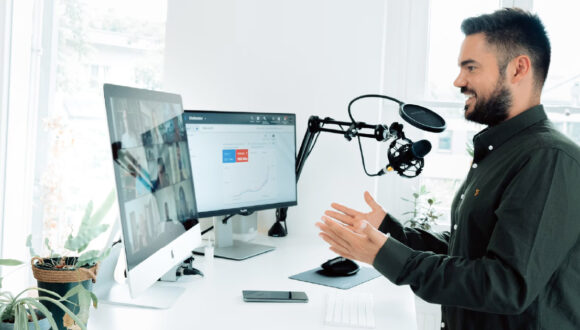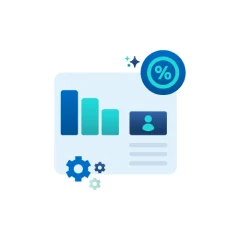Content Management für den Vertrieb
Entdecken Sie neueste Erkenntnisse zur Verwaltung von Vertriebsinhalten. In dieser Kategorie finden Sie Themen wie Kontrolle, Erstellung und Akzeptanz von Inhalten, Sales Content-Strategien und mehr. Lernen Sie, wie Sie überzeugende Vertriebsunterlagen erstellen, Abläufe effizienter gestalten und datengestützte Einblicke nutzen, um Ihre Vertriebsleistung zu steigern.

Artikel pro seite:

So erstellen Sie überzeugungskräftige Vertriebsmaterialien
Verbessern Sie die Buyer Journey mit Vertriebsmaterialien. Erfahren Sie, wie sich Teams ausstatten, potenzielle Kunden überzeugen und B2B-Kunden gewinnen lassen

Konsistenz und Ergebnisse von Inhalten mit Content Governance fördern
Content Governance mit spezifischen Metriken, Workflow-Schritten und einer Erfolgsgeschichte aus der Praxis für aktuellen, korrekten und wirkungsvollen Content.

Digitale Verkaufsräume: Die Zukunft des Vertriebs
Schließen Sie mit digitalen Verkaufsräumen Geschäfte schneller ab. Erfahren Sie mehr über Funktionen, Vorteile und Rolle in modernen Vertriebsstrategien.

Sales Content Analytics: Schlüsselmetriken für die Analyse von Vertriebsinhalten
Erkunden Sie den Nutzen und Strategien der Sales Content Analytics, und erfahren Sie, wie Sie das Content-Management Ihres Vertriebs optimieren können.

Kernpunkte einer Sales Enablement Content-Strategie
Überzeugendes Sales Enablement Content weckt Käuferinteresse und steigert den Umsatz. Entdecken Sie die Grundelemente einer soliden Sales Content-Strategie.

In 6 Schritten zum effektiven Sales Enablement-Plan
Sales-Enablement-Pläne verbessern Gewinnrate von Vertriebsteams durch besseres Onboarding und die Verfügbarkeit von Vertriebsinhalten.

Wie Sie Zusammenarbeit fördern – in Zeiten von COVID-19 und danach
Agil zu sein und sich neuen Bedingungen anzupassen, war noch nie so wichtig wie heute – und dafür bedarf es Sales Enablement.

6 Kritische Features für Sales Enablement-Lösungen
Ziehen Sie Sales Enablement-Lösungen in Betracht? Entdecken Sie die 6 Fähigkeiten, die Sie laut Gartner haben sollte, und finden Sie heraus, was Highspot kann.






